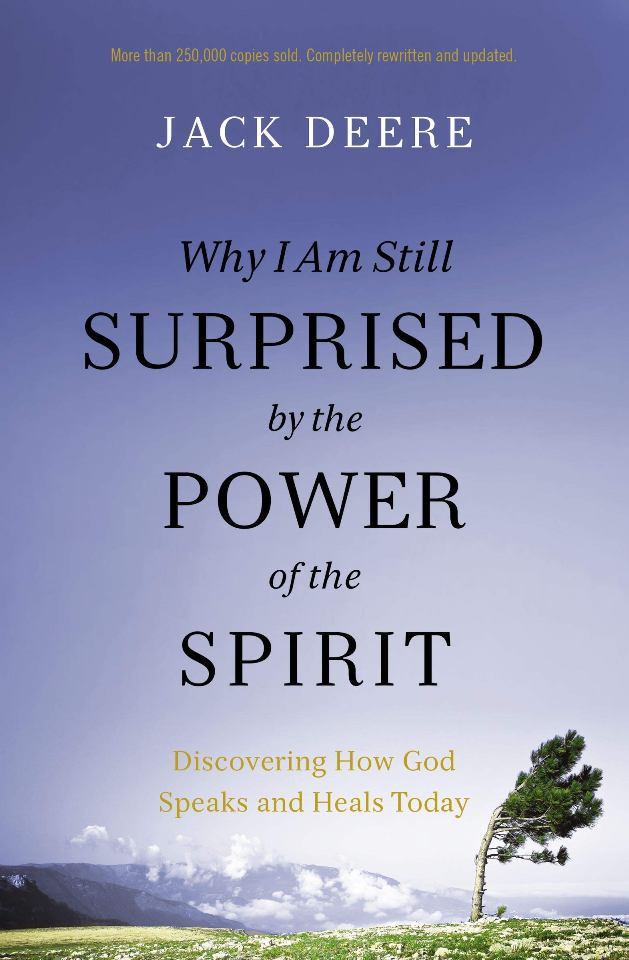Jack Deere: Why I Am Still Surprised by the Power of the Spirit
 Jack S. Deere, Why I Am Still Surprised by the Power of the Spirit: Discovering How God Speaks and Heals Today (Grand Rapids, MI: Zondervan Reflective, 2020), 320 pages, ISBN 9780310108115.
Jack S. Deere, Why I Am Still Surprised by the Power of the Spirit: Discovering How God Speaks and Heals Today (Grand Rapids, MI: Zondervan Reflective, 2020), 320 pages, ISBN 9780310108115.
Most of Jack Deere’s books have dealt with the supernatural gifts of the Holy Spirit, this present volume is no exception. Some of the material in this book was published in his earlier work Surprised by the Power of the Spirit (1993). Those who have read the earlier volume will see that there are significant differences between the two books. I think Why I Am Still Surprised By the Power of the Spirit is important for at least three reasons. First, Deere is an academic, he has taught at a seminary, specifically, Dallas Theological Seminary. Second, he used to be a cessationist. That is, at one time he believed that certain spiritual gifts mentioned in the New Testament are no longer active in the church today. However, he did a complete turnaround, he now embraces the opposite view; he is a continuationist. He now believes that all of the gifts of the Spirit are for today. Third, Deere has ministered in the gifts of the Spirit. So for him it was not just a matter of changing his theology, he acted on his new beliefs and began to minister in the gifts of the Spirit.
The book is made up of 26 chapters and 5 appendixes. In the course of its pages the author covers a variety of subjects; as he does so he draws from Scripture, history, and his own experience. Two people who played significant roles in his journey from cessationist to continuationist were John Wimber and Dr. John White. Some of the subjects that Deere addresses include: cessationism, hearing God, healing, deliverance, and how to cultivate spiritual gifts. He also discusses the subject of physical manifestations that can be seen in some Pentecostal/Charismatic meetings.
There are some real benefits to be gained from reading this book. One of these benefits is Deere’s history and perspective, he was at one time a cessationist. Because of this he understands their theology and why they think the way they do. He traces the development of cessationist teaching from John Calvin, to Conyers Middleton, to B.B. Warfield. In addition to setting forth the history of cessationism he refutes it, he shows where its teachings depart from Scripture. He devotes multiple chapters to cessationism. One chapter that has some relevance to cessationism and that may be of particular interest is the chapter called, “The Real Reason Christians Do Not Believe in Miracles.” Deere maintains that the real reason some Christians do not believe in the miraculous gifts of the Holy Spirit is actually the argument from experience, not Scripture (page 50). These believers have not seen the miraculous, because it has not been part of their experience they do not believe (pages 47-48). Their “lack of experience” (page 50) causes them to doubt.
Category: Spirit, Summer 2020


